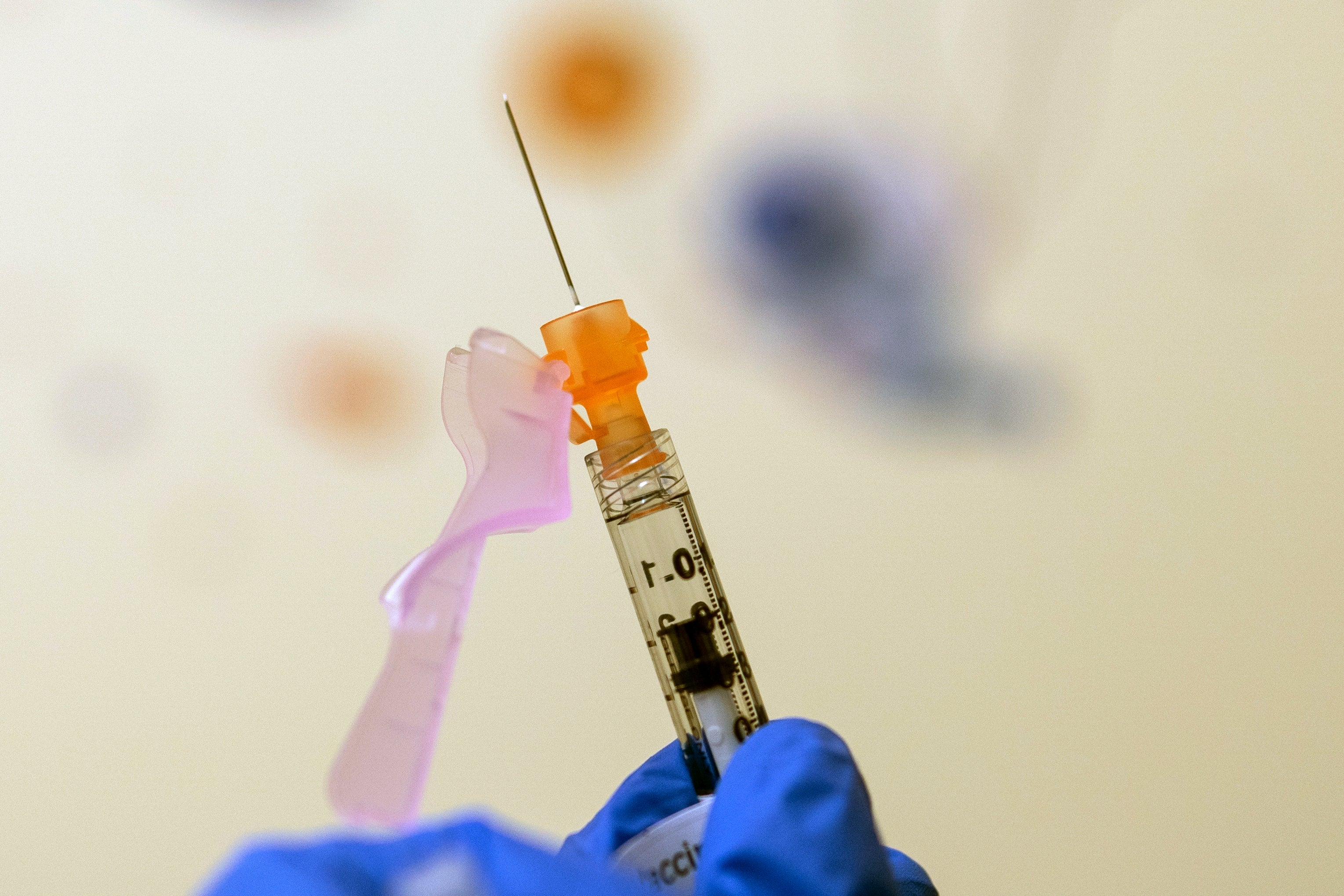AP source: US urges Pfizer to apply for under-5 COVID shots
U.S. regulators are urging drugmaker Pfizer to apply for emergency authorization for a two-dose regimen of its COVID-19 vaccine for children 6 months to 5 years old

Your support helps us to tell the story
From reproductive rights to climate change to Big Tech, The Independent is on the ground when the story is developing. Whether it's investigating the financials of Elon Musk's pro-Trump PAC or producing our latest documentary, 'The A Word', which shines a light on the American women fighting for reproductive rights, we know how important it is to parse out the facts from the messaging.
At such a critical moment in US history, we need reporters on the ground. Your donation allows us to keep sending journalists to speak to both sides of the story.
The Independent is trusted by Americans across the entire political spectrum. And unlike many other quality news outlets, we choose not to lock Americans out of our reporting and analysis with paywalls. We believe quality journalism should be available to everyone, paid for by those who can afford it.
Your support makes all the difference.U.S. regulators are urging drugmaker Pfizer to apply for emergency authorization for a two-dose regimen of its COVID-19 vaccine for children 6 months to 5 years old while awaiting data on a three-dose course, aiming to clear the way for the shots as soon as late February, a person familiar with the matter told The Associated Press.
The company's application is expected to be submitted as soon as Tuesday.
Early Pfizer data has shown the vaccine — which is administered to younger kids at one-tenth the strength of the adult shot — is safe and produces an immune response. But last year Pfizer announced the two-dose shot proved to be less effective at preventing COVID-19 in kids ages 2-5, and regulators encouraged the company to add a third dose to the study on the belief that another dose would boost the vaccine's effectiveness much like booster doses do in adults.
Now, the Food and Drug Administration is pushing the company to submit its application based on the two-dose data for potential approval in February and then to return for additional authorization once it has the data from the third dose study, which is expected in March, the person familiar with the matter said. The two-step authorization process could mean that young children could be vaccinated more than a month earlier than previous estimates, assuming the FDA and the Centers for Disease Control and Prevention greenlight the shots.
The person spoke on the condition of anonymity to discuss sensitive regulatory issues. The person said the decreased effectiveness of the two-dose vaccine was not unexpected given the emergence of the highly transmissible omicron variant of COVID-19. Allowing young kids to be vaccinated with a two-dose shot earlier would ultimately accelerate when they could get the expected stronger protection from a third dose.
That would be welcome news for parents of young children, the last remaining age group without approval of COVID-19 shots.
Young children are far less likely than adults to develop serious complications or to die from COVID-19, but incidences of illness among the age group have risen amid the nationwide spike in cases from the omicron variant. Most cases and deaths occur among older people, especially those who are unvaccinated.
Speeding the authorization of pediatric vaccines against COVID-19 has been a priority for more than a year of the Biden administration, which believes them critical to reopening and keeping open schools and day care centers — and for freeing up parents occupied by child care responsibilities to return to the workforce.
Vaccines for kids ages 5-12 were approved by U.S. regulators in November, though uptake of shots has been slower than U.S. officials hoped.
Pfizer's primary series is administered three weeks apart. The third dose for young kids is being studied for administration at least two months after the second dose.
News of the earlier regulatory review was first reported by The Washington Post.